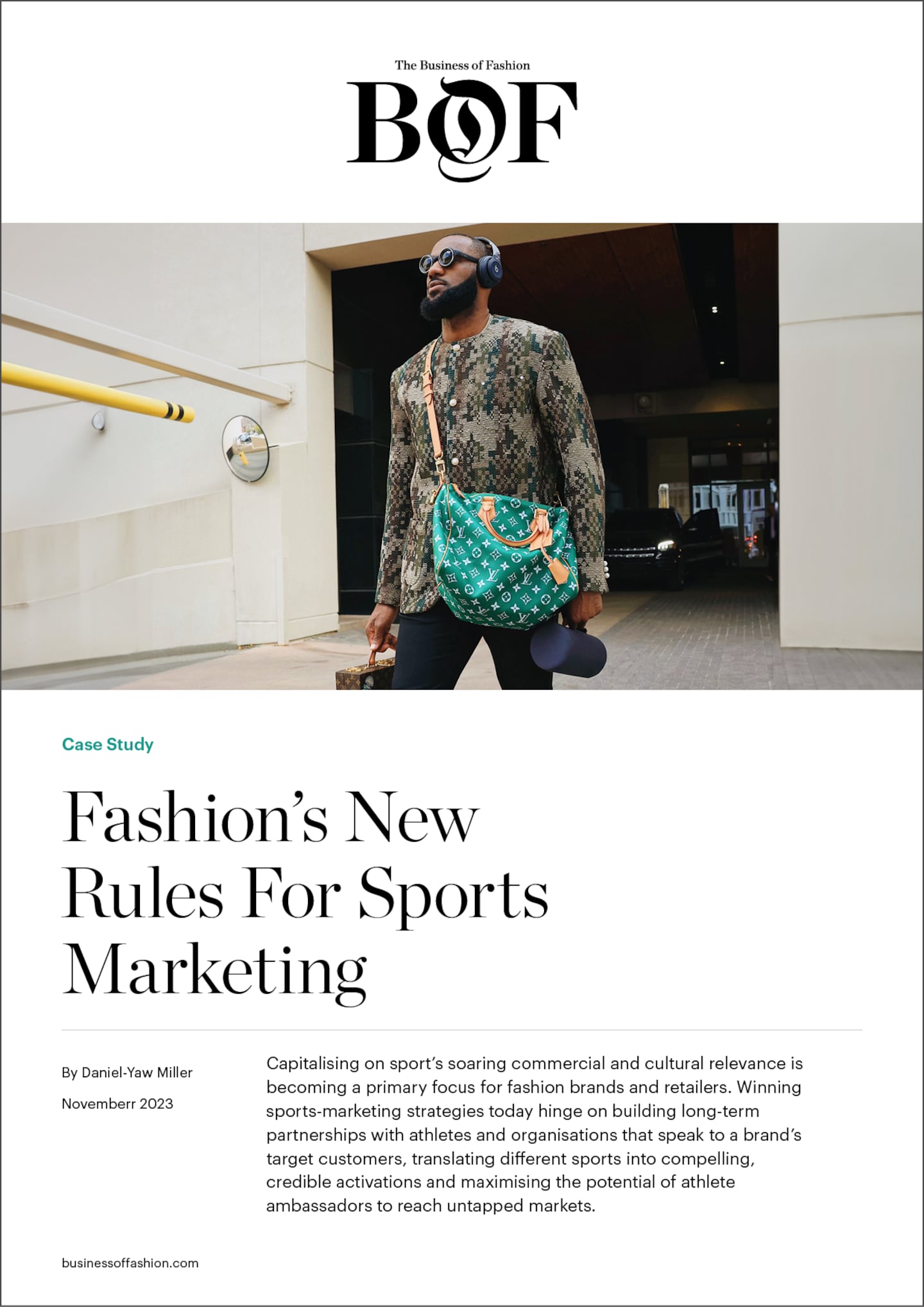
The Business of Fashion
Agenda-setting intelligence, analysis and advice for the global fashion community.

Agenda-setting intelligence, analysis and advice for the global fashion community.

When the Paris Olympic and Paralympic Games kick off in July 2024, the millions of global fans watching will see far more than just athletes.
LVMH brands such as Louis Vuitton, Dior and Berluti will provide uniforms for select teams, while the medals will be the work of its high jewellery label, Chaumet. For the first time ever, the games will feature LVMH-sponsored athletes, including world-champion swimmer Léon Marchand, European champion in artistic gymnastics Mélanie de Jesus dos Santos and Olympic gold-medalist fencer Ezno Lefort.
The “premium” partnership between LVMH and the Olympics marks the biggest indication to date of sport’s newfound importance to fashion. Until recently, sport was one of the remaining cultural arenas in which fashion, with a few exceptions, had failed to forge long-lasting and meaningful relationships. That has changed.
Fashion brands are waking up to the commercial value of sports like basketball, football, tennis and Formula 1 as they look to be part of the booming sports-sponsorship market, which is projected to grow from $63.1 billion in 2021 to $109.1 billion by 2030, according to PwC.
ADVERTISEMENT
“Sport is now the only by-appointment thing to watch on TV or tune into live at that point in time — everything else is on demand,” said Clive Reeves, PwC’s UK sports leader. “To be in the conversation, you need to watch sport at that point in time, which makes it the only thing left in society that really drives a huge volume of people at specific moments, which for brands is very special and valuable.”
The scope for fashion’s ability to tap into sports has been blown wide open. Beyond competing with large corporations for traditional sponsorship on jerseys or around stadiums, brands can target niche areas where they may have a more natural impact. For example, they can partner with athletes on clothing lines, dress them for the “tunnel walk” that occurs as they enter an arena — images of which are instantly shared online by dedicated social media accounts — or even create clothing for their avatars in video games.
“There is still so much untapped potential and uncharted territory for brands to explore across so many different sports,” said Kenny Annan-Jonathan, a sports marketing veteran and founder of London-based agency The Mailroom, who was appointed creative director of the Premier League’s Crystal Palace Football Club in August 2023. “We’re only at the outset of seeing where the world of sports can take fashion brands.”
While sportswear companies like Nike, Adidas and Puma have long since aligned their brands with fashion, this case study unpacks opportunities for non-sportswear brands and retailers. The companies profiled — German luxury brand Boss, Swiss watchmaker Tag Heuer and UK-based sneaker marketplace start-up The Edit Ldn — each have placed sports marketing at the heart of their growth strategies and brand identities, either to deepen connections with existing consumers or as a means to effectively and authentically target new audiences.
Disclosure: LVMH is part of a group of investors who, together, hold a minority interest in The Business of Fashion. All investors have signed shareholders’ documentation guaranteeing BoF’s complete editorial independence.
Calvin Klein’s chief marketing officer Jonathan Bottomley speaks to Imran Amed about the strategy behind the brand’s buzzy Jeremy Allen White-fronted campaign.
Often left out of the picture in a youth-obsessed industry, selling to Gen-X and Baby Boomer shoppers is more important than ever as their economic power grows.
This month, BoF Careers provides essential sector insights to help PR & communications professionals decode fashion’s creative landscape.
The brand’s scaled-back Revolve Festival points to a new direction in its signature influencer marketing approach.